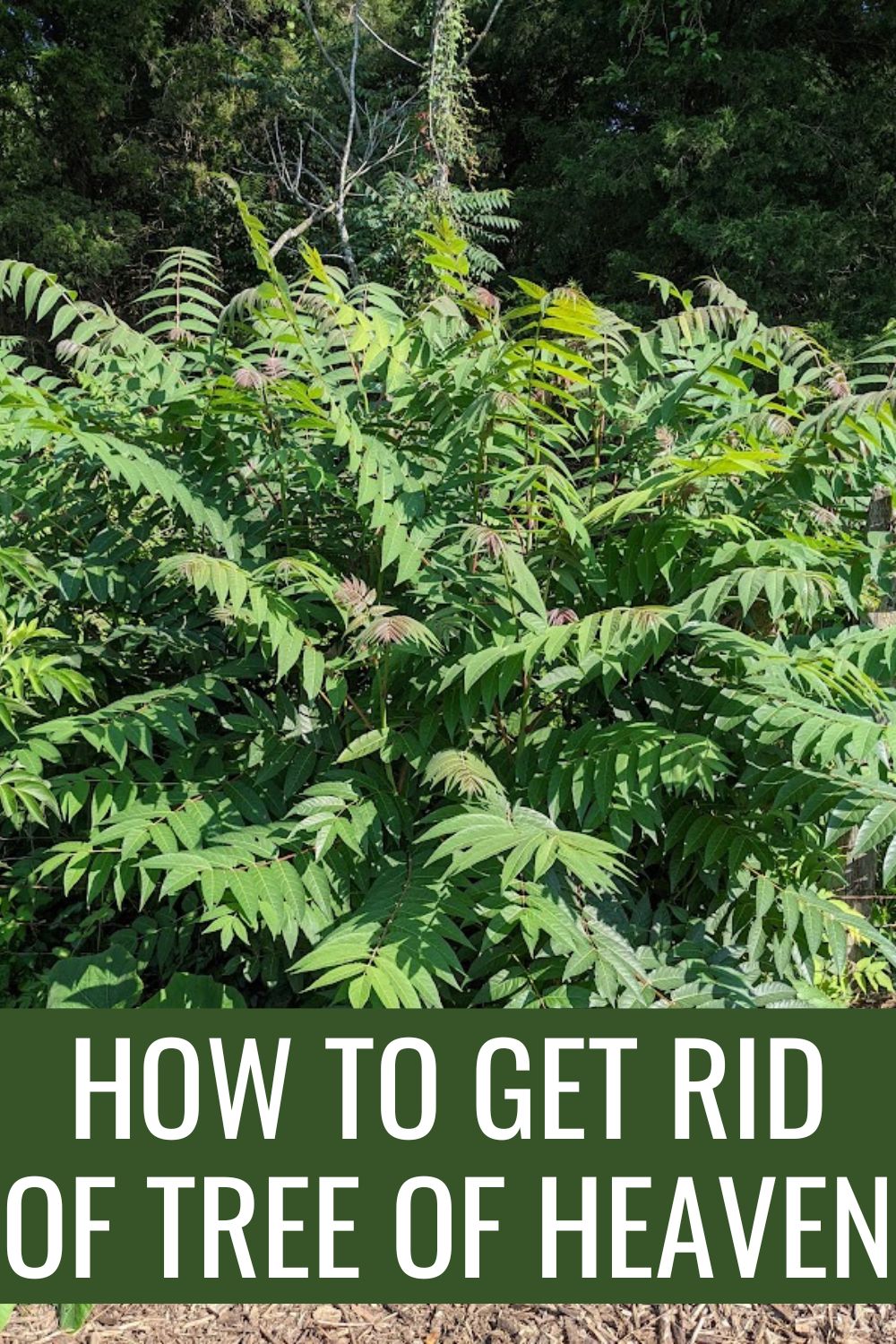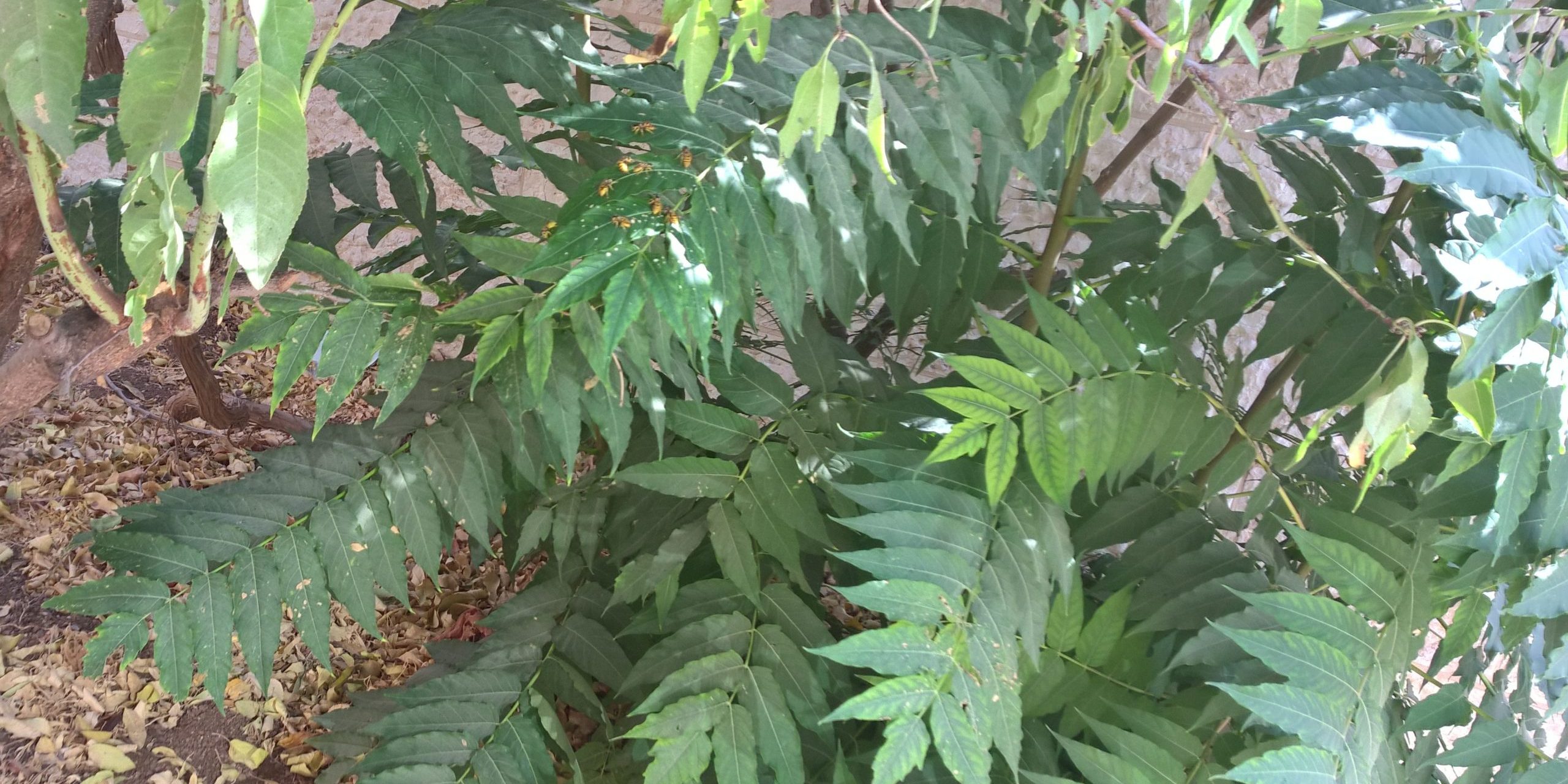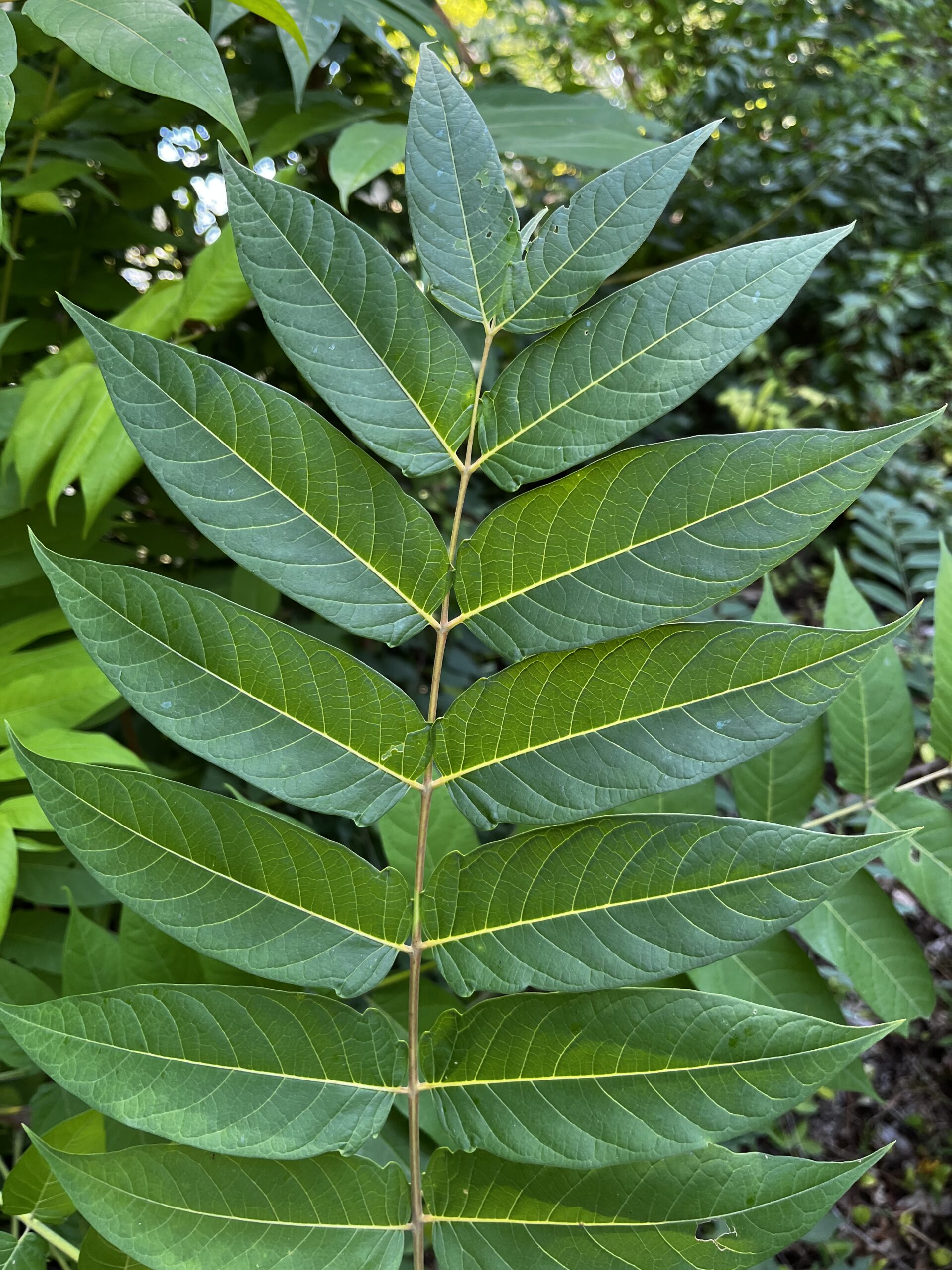Understanding the Resilience of Tree of Heaven
The Tree of Heaven (Ailanthus altissima) is a highly invasive and resilient species that has been causing significant problems in many parts of the world. Native to China, this deciduous tree has been widely introduced as an ornamental plant, but it has quickly spread beyond its intended boundaries, outcompeting native vegetation and causing ecological harm. One of the main reasons why Tree of Heaven is so difficult to control is its ability to produce large quantities of seeds, which can remain viable in the soil for many years. Additionally, the tree’s extensive root system allows it to regrow quickly from even small fragments of root left behind after cutting or removal.
Traditional methods of controlling Tree of Heaven, such as cutting or herbicide application, have proven to be ineffective in the long term. This is because the tree’s root system is not fully removed, allowing it to regrow, and herbicides may not be able to penetrate the tree’s thick bark. Furthermore, repeated use of herbicides can lead to the development of resistant populations, making control even more challenging. As a result, there is a growing interest in alternative methods of controlling Tree of Heaven, including the use of natural herbicides like vinegar. But will vinegar kill Tree of Heaven? The answer is not a simple one, and it requires a deeper understanding of the tree’s biology and the science behind vinegar’s herbicidal properties.
In order to develop effective control strategies, it is essential to understand the growth patterns and habits of Tree of Heaven. The tree can grow up to 80 feet tall, with a broad, rounded crown and a straight, columnar trunk. Its leaves are large and compound, with a distinctive odor that is often compared to peanuts or cashews. Tree of Heaven is a prolific seed producer, with a single tree capable of producing hundreds of thousands of seeds per year. The seeds are dispersed by wind and water, allowing the tree to spread quickly over long distances.
Given the challenges of controlling Tree of Heaven, it is clear that a comprehensive approach is needed. This may involve a combination of physical removal, herbicide application, and cultural controls, such as mulching and solarization. By understanding the tree’s biology and ecology, land managers and homeowners can develop effective strategies for controlling Tree of Heaven and preventing its spread. In the next section, we will explore the use of vinegar as a natural herbicide and its potential effectiveness in killing Tree of Heaven.
How to Identify and Assess Tree of Heaven Infestations
Identifying Tree of Heaven can be a challenging task, especially for those who are not familiar with the species. However, there are several characteristics that can help distinguish it from other trees. One of the most distinctive features of Tree of Heaven is its leaf shape and arrangement. The leaves are large, compound, and have a distinctive odor that is often compared to peanuts or cashews. They are typically 1-2 feet long and have 11-25 leaflets that are arranged in a feather-like pattern.
Another way to identify Tree of Heaven is by its bark characteristics. The bark is smooth and gray when the tree is young, but it becomes rough and scaly with age. The trunk is straight and columnar, and can grow up to 80 feet tall. Tree of Heaven also produces small, yellowish flowers in the spring, which are followed by clusters of samaras (winged seeds) in the summer.
Assessing the severity of Tree of Heaven infestations is also crucial for effective control. This can be done by evaluating the density of the infestation, the size and age of the trees, and the presence of any other invasive species. It is also important to consider the environmental conditions, such as soil type, moisture levels, and sunlight, as these can affect the growth and spread of the tree.
When assessing Tree of Heaven infestations, it is also important to look for signs of growth, such as new leaves, flowers, or seeds. This can indicate that the tree is actively growing and spreading, and that control measures may need to be taken. Additionally, looking for signs of stress or damage, such as dead or dying leaves, can indicate that the tree is under attack by pests or diseases, and that control measures may need to be adjusted.
By understanding the growth patterns and habits of Tree of Heaven, land managers and homeowners can develop effective strategies for controlling the species. This may involve a combination of physical removal, herbicide application, and cultural controls, such as mulching and solarization. In the next section, we will explore the use of vinegar as a natural herbicide and its potential effectiveness in killing Tree of Heaven.
Using Vinegar as a Natural Herbicide: Does it Really Work?
Vinegar has been gaining popularity as a natural herbicide for controlling weeds and invasive species, including Tree of Heaven. But will vinegar kill Tree of Heaven? The answer lies in the science behind how vinegar works. Vinegar is a weak acid that can disrupt the cell membranes of plants, ultimately leading to their death. The acetic acid in vinegar can also interfere with the plant’s ability to photosynthesize, making it difficult for the plant to produce energy.
Studies have shown that vinegar can be effective in controlling Tree of Heaven, especially when used in combination with other methods. A study published in the Journal of Environmental Science and Health found that a 20% vinegar solution was effective in killing Tree of Heaven seedlings. Another study published in the Journal of Invasive Plant Science and Management found that a combination of vinegar and solarization was effective in controlling Tree of Heaven infestations.
However, it’s essential to note that vinegar has its limitations. It may not be effective in killing mature Tree of Heaven trees, and repeated applications may be necessary to achieve desired results. Additionally, vinegar can be corrosive and may damage equipment or skin, so proper safety precautions must be taken when handling it.
When using vinegar as a natural herbicide, it’s crucial to consider the concentration and application method. A higher concentration of vinegar may be necessary to achieve desired results, but it also increases the risk of overspray and damage to beneficial plants. Application methods, such as foliar sprays or soil injections, can also impact the effectiveness of vinegar in controlling Tree of Heaven.
Despite its limitations, vinegar can be a valuable tool in the fight against Tree of Heaven. Its natural and non-toxic properties make it an attractive alternative to traditional herbicides, and its effectiveness in controlling seedlings and young trees can help prevent the spread of this invasive species. In the next section, we will provide step-by-step instructions on preparing and applying vinegar solutions for Tree of Heaven control.
Preparing and Applying Vinegar Solutions for Tree of Heaven Control
To effectively use vinegar as a natural herbicide for controlling Tree of Heaven, it’s essential to prepare and apply the solution correctly. Here’s a step-by-step guide to help you get started:
**Concentration:** The recommended concentration of vinegar for controlling Tree of Heaven is between 10% to 20% acetic acid. You can use white vinegar or apple cider vinegar, but make sure to dilute it with water according to the recommended concentration.
**Application Methods:** There are several application methods you can use to apply vinegar solutions to Tree of Heaven, including:
- Foliar sprays: Spray the vinegar solution directly on the leaves and stems of the Tree of Heaven.
- Soil injections: Inject the vinegar solution into the soil around the base of the Tree of Heaven.
- Basal bark treatment: Apply the vinegar solution to the basal bark of the Tree of Heaven, making sure to cover the entire circumference of the trunk.
**Safety Precautions:** When handling vinegar, it’s essential to take safety precautions to avoid skin and eye irritation. Wear protective clothing, including gloves and safety glasses, and make sure to wash your hands thoroughly after handling the vinegar solution.
**Application Timing:** The best time to apply vinegar solutions to Tree of Heaven is during the growing season, when the tree is actively producing new growth. Avoid applying vinegar during periods of drought or extreme weather conditions, as this can reduce its effectiveness.
**Follow-up Treatments:** Depending on the severity of the infestation and the effectiveness of the initial treatment, follow-up treatments may be necessary to achieve desired results. Monitor the area regularly and reapply the vinegar solution as needed.
By following these steps and taking the necessary safety precautions, you can effectively use vinegar as a natural herbicide for controlling Tree of Heaven. Remember to always read and follow the label instructions, and take necessary precautions to avoid overspray and damage to beneficial plants.
Combining Vinegar with Other Methods for Enhanced Effectiveness
While vinegar can be an effective natural herbicide for controlling Tree of Heaven, combining it with other methods can enhance its effectiveness. Here are some examples of successful combinations and their outcomes:
**Physical Removal + Vinegar:** Physically removing Tree of Heaven seedlings or small trees and then applying vinegar to the stumps can prevent regrowth and reduce the risk of re-infestation. This combination is particularly effective for small-scale infestations.
**Mulching + Vinegar:** Mulching around the base of Tree of Heaven trees can help suppress seed germination and prevent new growth. Applying vinegar to the mulched area can enhance its effectiveness by killing any remaining seeds or seedlings.
**Solarization + Vinegar:** Solarization involves trapping the sun’s heat under a clear plastic tarp to kill weeds and seeds. Applying vinegar to the soil before solarization can enhance its effectiveness by killing any remaining seeds or seedlings.
**Cut-Stump Treatment + Vinegar:** Cut-stump treatment involves cutting the Tree of Heaven tree at the base and applying a herbicide to the stump to prevent regrowth. Using vinegar as the herbicide can be an effective alternative to traditional herbicides.
These combinations can be tailored to specific situations and can be adjusted based on the severity of the infestation and the desired level of control. By combining vinegar with other methods, you can create a comprehensive management plan that addresses the root causes of the infestation and prevents re-infestation.
When combining vinegar with other methods, it’s essential to consider the potential interactions between the different methods. For example, applying vinegar to a mulched area may reduce the effectiveness of the mulch. Similarly, using vinegar in combination with solarization may require adjusting the duration of the solarization treatment.
By understanding the potential interactions between different methods, you can create a comprehensive management plan that effectively controls Tree of Heaven and prevents re-infestation.
Precautions and Considerations When Using Vinegar on Tree of Heaven
While vinegar can be an effective natural herbicide for controlling Tree of Heaven, there are several precautions and considerations to keep in mind when using it. Here are some potential risks and considerations to be aware of:
**Overspray:** Vinegar can be corrosive and may damage nearby plants, soil, or surfaces. Be careful to avoid overspray and take necessary precautions to protect surrounding areas.
**Soil Contamination:** Vinegar can contaminate soil and affect its pH levels, potentially harming beneficial microorganisms and plants. Use caution when applying vinegar to soil and avoid over-saturating the area.
**Impact on Beneficial Plants:** Vinegar can harm or kill beneficial plants, including native species and crops. Be careful to avoid applying vinegar to areas where beneficial plants are present.
**Skin and Eye Irritation:** Vinegar can cause skin and eye irritation, so be sure to wear protective clothing, including gloves and safety glasses, when handling it.
**Respiratory Problems:** Vinegar can cause respiratory problems, including coughing and shortness of breath, so be sure to use it in well-ventilated areas and avoid inhaling it.
**Environmental Concerns:** Vinegar can contaminate waterways and harm aquatic life, so be careful to avoid applying it near water sources or in areas where it may run off into waterways.
By being aware of these potential risks and considerations, you can use vinegar safely and effectively to control Tree of Heaven. Always follow the recommended application rates and take necessary precautions to protect yourself, the environment, and beneficial plants.
Monitoring and Maintaining Tree of Heaven Control Over Time
Monitoring and maintaining control of Tree of Heaven over time is crucial to ensure long-term success. Here are some tips on regular inspections, follow-up treatments, and prevention strategies:
**Regular Inspections:** Regularly inspect the treated area for signs of regrowth or new infestations. Check for seedlings, saplings, and mature trees, and take note of any changes in the vegetation or soil conditions.
**Follow-up Treatments:** Follow-up treatments may be necessary to maintain control of Tree of Heaven. Repeat the treatment process as needed, taking care to adjust the application rate and method based on the severity of the infestation and the effectiveness of previous treatments.
**Prevention Strategies:** Prevention is key to maintaining control of Tree of Heaven. Implement prevention strategies such as:
- Removing seedlings and saplings before they reach maturity
- Using mulch or other barriers to prevent seed germination
- Planting native species that can outcompete Tree of Heaven
- Monitoring for and removing any new infestations promptly
**Long-term Management:** Long-term management of Tree of Heaven requires a comprehensive approach that includes regular monitoring, maintenance, and prevention. By incorporating these strategies into your management plan, you can ensure effective control of Tree of Heaven over time.
**Adaptive Management:** Adaptive management involves adjusting your management plan based on the results of monitoring and maintenance efforts. Be prepared to adjust your approach as needed to ensure effective control of Tree of Heaven.
By following these tips and incorporating them into your management plan, you can ensure effective control of Tree of Heaven over time and prevent its spread to new areas.
Conclusion: A Holistic Approach to Managing Tree of Heaven
In conclusion, managing Tree of Heaven requires a comprehensive approach that incorporates multiple methods and strategies. While vinegar can be an effective natural herbicide for controlling Tree of Heaven, it is essential to consider its limitations and potential risks. By combining vinegar with other methods, such as physical removal, mulching, or solarization, you can enhance its effectiveness and achieve long-term control.
Regular monitoring and maintenance are crucial to ensuring the success of your management plan. Regular inspections, follow-up treatments, and prevention strategies can help prevent the spread of Tree of Heaven and maintain control over time.
A holistic approach to managing Tree of Heaven involves considering the entire ecosystem and the potential impacts of your management plan on beneficial plants and animals. By taking a comprehensive approach, you can ensure effective control of Tree of Heaven while minimizing harm to the environment.
Remember, managing Tree of Heaven is an ongoing process that requires patience, persistence, and a willingness to adapt to changing conditions. By staying informed and up-to-date on the latest management techniques and strategies, you can ensure effective control of this invasive species and protect the health and biodiversity of your ecosystem.
Will vinegar kill Tree of Heaven? The answer is yes, but it is essential to use it in conjunction with other methods and strategies to achieve long-term control. By taking a holistic approach to managing Tree of Heaven, you can ensure effective control and protect the health and biodiversity of your ecosystem.








